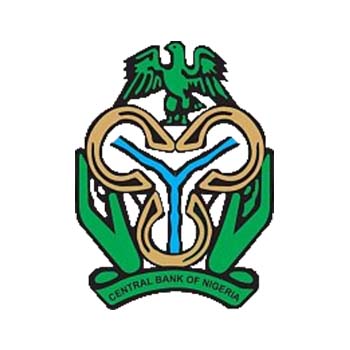Faced with the increasing pressure on its revenues to fix such expenditure items as insecurity, close the gap in critical infrastructure, among others, members of the Central Bank of Nigeria (CBN) Monetary Policy Committee (MPC), want the fiscal authorities to reconsider Public-Private Partnership model, in view of the 57.3% budget deficit recorded by the Federal Government in the 12 months ended December 31, 2021.
In their personal comments on what influenced their voting decisions at the last meeting, members lamented the decline in revenue, stressing the need to free resources for other welfare initiatives targeted at citizens, Folashodun Shonubi, a member.
As if supporting Shonubi, a deputy governor at the CBN, Festus Adenikinju, a member, recalled that the Federal Government’s fiscal operation recorded fiscal deficit stood at N7.6tr between January and December 2021, “higher than FGN’s retained revenue which stood at N4.8tr.”
Added to that, he said government expenditure rose from N951.14bn in January 2022 to N952.6bn the following month, while “retained revenue declined from N405.51bn to N371.67bn over the same period, leading to an increase in budget deficit and public debt.
This, he continued, is made worse by the fact that the current recovery is fragile, and “projected real GDP growth is not strong enough to support poverty reduction and reduce unemployment rates in the economy.”
Worse still, he believes uncertainty and downside risks to the economy are also quite high, compounded by the huge insecurity across the country and a rising and persistent inflation build-up in the economy that cannot be ignored, which needs to be dealt with at the risk of compromising long-term investment and economic growth.
“There is a build-up of inflation expectations in the economy. This will be compounded by the increased spending associated with electioneering in Nigeria. The CBN, being the only institution vested with the responsibility to maintain price stability, must address this inflationary tendency,” Adenikinju warned.
He equally expressed concern over “the rising share of government in total credit to but if not urgently addressed would have massive impacts on investments and future revenue flow from oil.”
Edward Adamu, in his personal comment, also noted the need for the federal and state governments to partner the recently established Infrastructure Corporation of Nigeria (InfraCorp), a dedicated privately managed infrastructure vehicle, which offers a unique opportunity for addressing the infrastructure deficit in the country.
“Governments (State and Federal) can leverage this vehicle, given the constraints on growing public revenue at the present,” he added.
Still on the persistent rise in inflation, Mrs. Aishah Ahmad, another deputy governor, while describing it as worrisome, called for a tightening policy stance which “seems to be appropriate to address the current inflationary pressure. But the factors driving inflation at this time are more of structural influences and exacerbated by external shocks.
With Nigeria’s economic recovery still fragile on account of new headwinds that constitute downside risks to the indicator like the Russian – Ukraine war that has disrupted global supply of commodities, among others, she noted the “need to calibrate policy responses to achieve an optimum mix of policies that will address the Bank’s mandate of price stability conducive to economic growth.”
Output Growth, Stable Naira
To grow output, Prof. Mike Obadan wrote, “requires continuous policy support, especially monetary policy to complement fiscal policy which, for some time now, is characterised by weak fiscal space.
“Targeted development finance interventions of the CBN would need to be sustained to boost aggregate supply of goods and services in aid of non-monetary inflation control.”
To reduce the current double-digit inflation, he urged the Nigerian National Petroleum Company Limited “to eliminate the current refined petroleum products scarcity and the regime of high prices attributed to it; while government should provide support needed for “investors developing local refineries, including modular refineries, to enable them expedite the completion of their projects, take-off, and start supplying products to the local markets.”
He also enjoined the CBN to maintain a stable naira exchange rate, thereby minimising its pass-through effects on imported goods prices, while governments at the Federal and state levels should use moral suasion to discourage economic agents from arbitrarily increasing the prices of goods and services, a situation that could have a psychological and positive effect.
“The CBN should ensure effective implementation of its development finance interventions in specific agricultural products and non-export value chains. It should address any genuine concerns of stakeholders on the interventions,” he added.
On his part, Rafindadi Sanusi, another member noted the further improvement in quality of banking industry assets, judging by the decline in Non-Performing Loan (NPL) ratio to 4.8% in February 2022, below the regulatory maximum of 5%.
He also applauded the jump in banking sector credit to the economy from N20.48tr in December 2020 “to N25.25tr in February 2022 owing to the Bank’s LDR policy, despite which interest rates fell, with 70.49% of customers paying less than 15% interest rates in February 2022.
In addressing the rising inflation, Edward Adamu, also a deputy governor, called for an increase in domestic production, while removing bottlenecks to free movement of goods across the country, hence the need to sustain the flow of credit to the real economy.
Government, he stressed, “must continue to tackle the problems of insecurity and infrastructure to reduce production and distribution costs.








